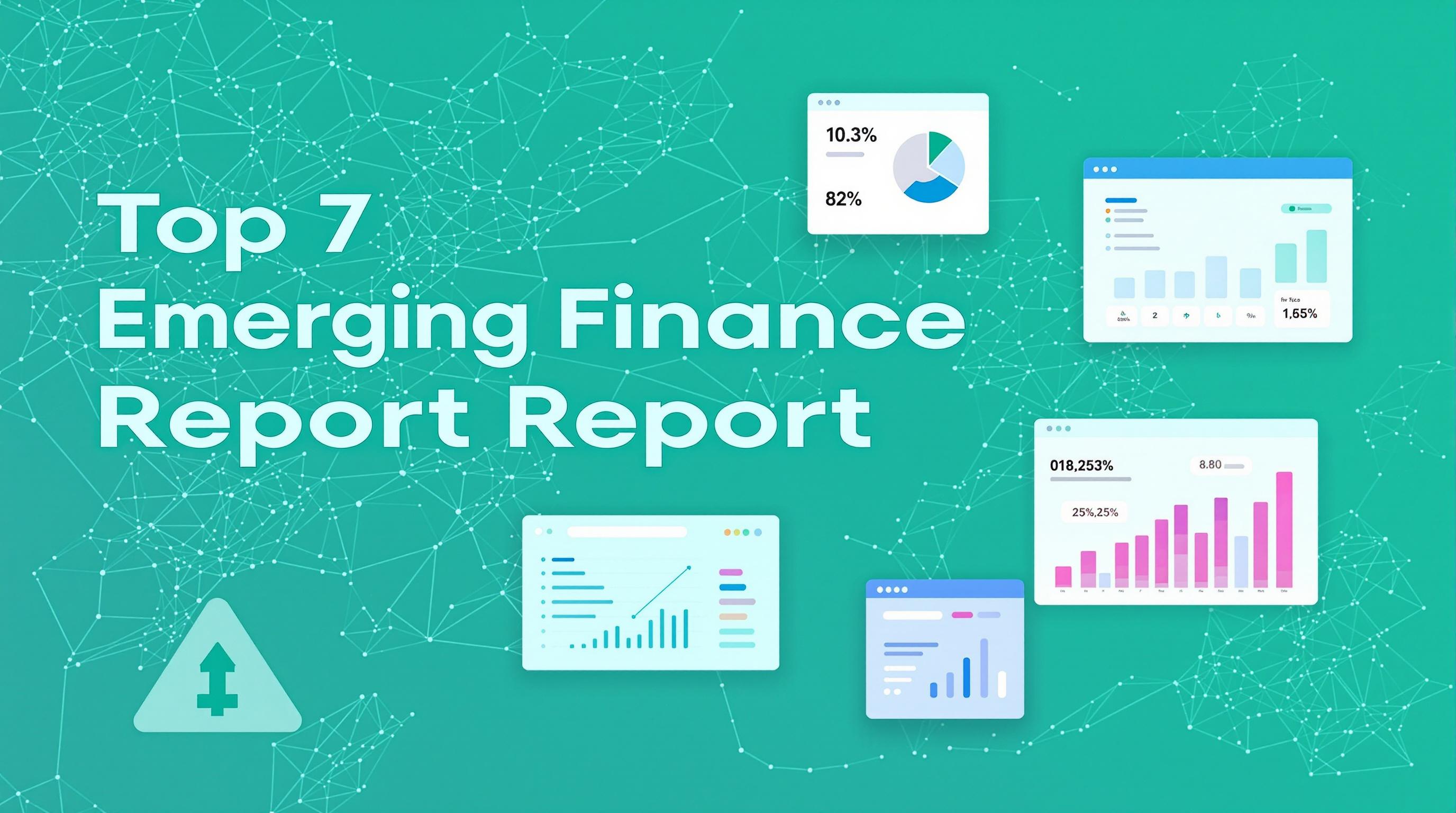Featured Articles
- "Behind the Numbers: How Quantum Computing Could Disrupt Traditional Finance Reporting"
- Beyond the Balance Sheet: The Dark Art of Creative Accounting in Corporate Finance Reports
- Cryptocurrency’s Silent Revolution: How Digital Assets Are Reshaping Traditional Finance Reporting
- Decoding the Dark Side: How Emotional Mismanagement Distorts Corporate Finance Reports
- "Finance Reports in the Age of AI: Uncovering Unintentional Biases and Surprising Impacts on Investment Strategies"
"Behind the Numbers: How Quantum Computing Could Disrupt Traditional Finance Reporting"
"Behind the Numbers: How Quantum Computing Could Disrupt Traditional Finance Reporting"
The advent of quantum computing is poised to transform traditional finance reporting in ways we have yet to fully grasp. By analyzing massive datasets and conducting complex calculations at unprecedented speeds, quantum computing could make conventional methods seem antiquated.
Understanding Quantum Computing
Before diving into its impact on finance, let’s take a moment to demystify quantum computing. Unlike classical computing, which uses bits as the smallest units of data (0 or 1), quantum computing operates on qubits, which can exist in multiple states simultaneously thanks to the principles of superposition and entanglement. This allows quantum computers to perform complex calculations much faster than their classical counterparts—potentially solving problems in seconds that would take classical computers thousands of years.
Traditional Finance Reporting: A Snapshot
Traditional finance reporting is like a game of telephone; information passes through multiple hands and often leads to discrepancies and delays. Financial analysts sift through mountains of data, ensuring every number is correct before presenting it to stakeholders. However, this exhaustive process can be time-consuming and error-prone—imagine the chaos of a report with erroneous numbers. A survey by Deloitte found that 64% of finance professionals believe they spend too much time on data collection rather than analysis.(1)
Quantum vs. Classical: The Speed Showdown
Quantum computers can tackle problems as complex as risk assessment for a portfolio of assets in the blink of an eye. For instance, a classical computer might take weeks to optimize investment strategies using Monte Carlo simulations, while a quantum computer could theoretically perform the same calculations in a fraction of that time. According to a report by McKinsey, quantum computing can reduce the processing time of certain algorithms by orders of magnitude.(2)
Case Studies: The Quantum Future is Now
Consider a recent collaboration between IBM and JPMorgan Chase, where the banking giant is using quantum computing to explore complex financial modeling and risk analysis. Their pilot program shows promise in creating more accurate predictive models that could redefine lending practices. Imagine a world where algorithms can predict loan default rates with almost prophetic certainty—reducing financial losses and increasing consumer trust.
The Ticking Clock: Real-Time Reporting
The potential for quantum computing goes beyond mere speed; it paves the way for real-time reporting. In today's fast-paced financial world, decision-makers need data at their fingertips. As we venture further into the era of quantum finance, the ability to update reports in real time could be game-changing. Figures from PwC suggest that companies leveraging real-time data reporting could achieve up to a 15% increase in operational efficiency.(3)
Risk Management Revolution
A particularly compelling area where quantum computing could make a significant impact is risk management. Financial institutions rely on quantitative models to assess risks, but these models are often limited by their complexity and the computational time required. Quantum computers can analyze various risk factors in parallel, providing a more nuanced view of market trends and anomalies. This capacity for increased depth and accuracy in understanding risk can not only enhance profitability but also reduce capital requirements, ultimately stabilizing the entire financial ecosystem.
The Art of the Possible: Fraud Detection
Fraud detection has always stood as a complex cat-and-mouse game. Traditional methods often struggle with pattern recognition in vast datasets. Quantum computing could use advanced algorithms to analyze transaction patterns instantly, identifying anomalies that signal fraudulent activities. Imagine a situation where suspicious transactions are flagged and halted within milliseconds—preventing losses before they even start. This is not just a dream; it’s a tangible future that quantum computing is inching closer toward.
Challenges on the Horizon
While the prospects are bright, several challenges loom. Firstly, the technology itself is still in its infancy. Quantum computers are extraordinarily delicate and require cutting-edge facilities to maintain their functionality. Furthermore, the financial sector must grapple with cybersecurity concerns, as the same technology that makes quantum computing so powerful could also be employed to breach existing security protocols.
The Regulation Quagmire
The introduction of quantum computing into finance also brings about significant regulatory challenges. How do we even begin to establish guidelines for technology that most people barely understand? As regulatory bodies play catch-up, the financial community cannot afford to slow down. This creates a tug-of-war between innovation and compliance—a balance that is tricky to maintain.
The Human Element: Skills Gap
Another glaring issue is the skills gap. Financial professionals will need to adapt to the new landscape, requiring not just an understanding of quantitative methodologies but also a fundamental grasp of quantum mechanics. Educational institutions and training programs will need to evolve, or companies risk being left behind in this brave new world.
Conversations at the Water Cooler
Now, let’s take a moment to ponder how this transformation will influence the daily lives of finance professionals. Picture this: it’s a Friday afternoon, and the team is gathered at the water cooler discussing the latest quarterly report. “Did you hear?” says Jerry from accounting, “We just modeled our risk management strategy with quantum tech! Last week’s data—poof! All processed.” What once took a week will be a matter of minutes. Exciting, isn’t it?
The Bottom Line
At the end of the day, the looming threat posed by quantum computing to traditional finance reporting is nothing short of revolutionary. The ability to process data with speeds and accuracies that are downright unfathomable could lead to new business models, improved accuracy, and a paradigm shift in how financial professionals approach their work. Even the most wary among us must acknowledge that quantum computing is not just a passing trend; it's an inevitable force shaping the future of finance.
For the Skeptics: A Persuasive Argument
For those who remain skeptical about the significance of quantum computing in finance, consider the speed at which technology has transformed our world in just the last twenty years. From mobile payments to blockchain, innovation has consistently disrupted traditional practices. What if quantum computing is the next wave of such innovation? According to a Boston Consulting Group Report, companies that adapt quickly to new technology generate 50% more revenue than their slower counterparts.(4)
The Call to Action
As we navigate this quantum future, it is essential for finance professionals and organizations to open their minds and consider how this technology could benefit them. Investing in research and development, participating in educational initiatives, and forging partnerships in the quantum computing space could be key to thriving in this new landscape.
The Quantum Dreamer’s Closing Thoughts
As someone who has followed the evolution of technology, it’s clear that we stand on the brink of a monumental shift in finance. Whether you’re 18 or 70, if you work in finance or simply seek to understand its workings, embracing the potential of quantum computing is not just an option; it’s a necessity. The future may be uncertain, but one thing is clear: the next generation of finance will require a fresh perspective, fueled by innovation and an unyielding quest for accuracy.
In Conclusion
As quantum computing tilts the scales of possibility, its ripples will undoubtedly extend far beyond finance reporting. We are witnessing the dawn of an era where the numbers aren’t merely numbers anymore—they will tell stories, reveal insights, and unlock opportunities beyond our imagination. Are you ready to embrace the quantum leap?
References:
(1) Deloitte, "The Future of Finance: Embracing Change for Business Growth", 2022.
(2) McKinsey & Company, "Quantum Computing: An Emerging Technology that Could Transform Industries", 2023.
(3) PwC, "Harnessing the Power of Real-Time Data in Finance", 2023.
(4) Boston Consulting Group, "Why Fast Adopters Win: The Competitive Advantage of Embracing New Technology", 2022.




